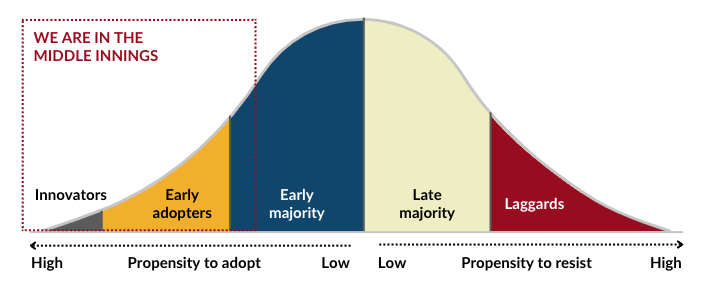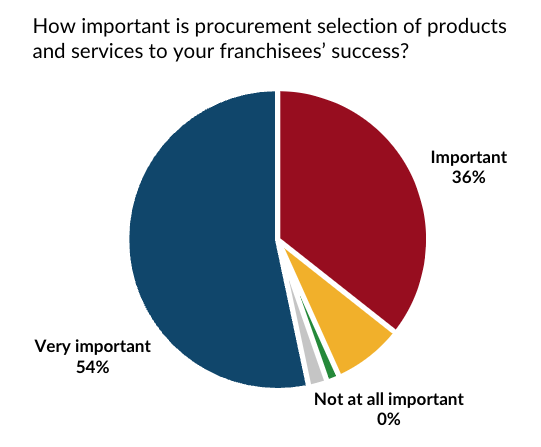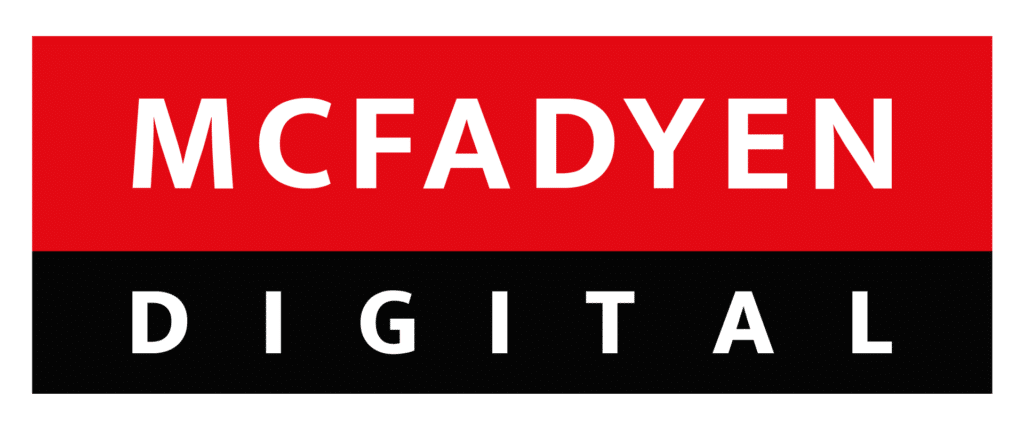
McFadyen Digital surveyed over 300 franchise executives to learn how centralized procurement platforms are transforming franchise operations, from reducing costs to driving growth.
Modern franchise-based businesses are constantly looking for ways to streamline operations, enhance profitability, and gain a competitive edge. One of the most powerful tools emerging in this space is the procurement marketplace. The rise of centralized, digital platforms for purchasing goods and services across distributed franchise locations is transforming franchise operations, from hospitality giants to fitness chains. McFadyen Digital’s recent white paper, “Franchise Procurement Marketplaces: Maximizing Ecosystem Growth,” delves into the trends and benefits of these platforms, offering insights based on a survey of 300 franchise leaders.
In this article, we’ll explore key themes from the white paper, focusing on the evolution of procurement marketplaces, the benefits they offer to franchises, and how they are helping to reshape the future of franchise growth and operations.
The Evolution of Franchise Procurement
Historically, franchise systems relied on centralized purchasing programs that were difficult to scale, costly to maintain, and often fragmented. With advances in e-commerce, cloud-based solutions, and digital platforms, procurement has evolved into a more efficient, data-driven process. Modern procurement marketplaces provide a centralized platform where franchisees can source goods and services, interact with vetted suppliers, and benefit from negotiated pricing.
These marketplaces also enable seamless onboarding of supplier catalogs, offering tools for managing contracts, invoices, and even payment processing. A critical shift highlighted in the white paper is that franchise owners no longer need to build these systems from scratch. Off-the-shelf marketplace software solutions allow them to rapidly implement scalable, customizable procurement ecosystems.

The Procurement Marketplace Adoption Curve
Driving Operational Efficiency and Growth
One of the most significant benefits of procurement marketplaces is their ability to drive operational efficiency. By centralizing the procurement process, these platforms give franchisees access to a vast network of pre-vetted suppliers with consistent pricing across locations. This reduces the administrative burden and frees up resources for franchisees to focus on core business activities, such as customer service and sales.
Moreover, procurement marketplaces offer powerful reporting and analytics tools. These capabilities allow franchisors and franchisees to gain insights into spending patterns, supplier performance, and areas where cost savings can be achieved. The integration of data analytics can help franchisees make informed purchasing decisions, reducing waste and ensuring that they get the best value from their suppliers.
Franchises that adopt procurement marketplaces also gain a competitive advantage by attracting new investors. As the white paper notes, procurement efficiency, quality control, and access to valuable data can make franchise systems more attractive to potential franchisees, ultimately boosting recruitment and growth.
Case Studies: Real-World Success in Procurement Marketplaces
Several prominent brands have already adopted procurement marketplaces with great success, as outlined in the white paper.
Accor Group: Streamlining Hospitality Procurement
Accor Group, a global leader in hospitality, launched its Astore Shop marketplace to support procurement for its 5,500 hotels across 95 countries. Through this platform, hotels can purchase from over 5,000 vetted suppliers, accessing operating supplies, equipment, and services tailored to their specific needs. Astore Shop’s hybrid model combines traditional negotiated contracts with an open marketplace for more flexibility.
Within just a year, Astore Shop experienced 500x growth in Gross Merchandise Value (GMV), demonstrating how a procurement marketplace can centralize purchasing and streamline operations at a large scale. With plans to expand to additional regions, Accor is also exploring opportunities to add new services, such as cleaning and gardening, to further enhance procurement efficiency.
Orangetheory Fitness: Simplifying Supply Chain Management
Orangetheory Fitness, a rapidly growing fitness franchise, developed a centralized procurement marketplace called Supplies Central to support over 1,500 U.S. studios. By offering a platform that manages orders for fitness equipment, retail products, and even studio construction materials, Supplies Central saved franchisees over 6,500 hours per year. Orangetheory’s procurement marketplace also provided co-branding opportunities with suppliers, creating an additional revenue stream for the franchise.
The ability to streamline procurement processes and reduce costs has not only improved operational efficiency for Orangetheory but also enabled the franchise to expand its network internationally, with plans to continue enhancing its supply chain infrastructure.
The Technology Adoption Curve: Where Procurement Marketplaces Stand
The adoption of procurement marketplaces is following the familiar technology adoption curve, popularized by Everett Rogers. According to McFadyen Digital’s research, the marketplace model is currently in the “early majority” phase. Innovators and early adopters, such as Accor Group and Orangetheory Fitness, have demonstrated the value of procurement marketplaces, paving the way for wider adoption. However, the technology has not yet reached its full potential across all franchise systems.
Mid-sized and growing franchise networks are increasingly exploring procurement marketplaces to stay competitive. As the technology becomes more accessible and user-friendly, there is growing pressure for franchise operators to embrace these platforms. However, many smaller or newer franchises are still in the process of assessing the benefits and feasibility of implementing these solutions.
Survey Insights: What Franchise Leaders Think

How Franchise Operators Support Procurement
McFadyen Digital’s survey of 300 franchise leaders revealed strong awareness of procurement marketplaces, with 87% of respondents indicating they were familiar with the concept. Additionally, 80% of executives had considered implementing such a platform for their franchise operations.
The perceived benefits of procurement marketplaces are wide-ranging, with survey respondents citing efficiency (29%), cost savings (26%), and access to a greater choice of products (19%) as the most important advantages. Interestingly, many executives believe that procurement marketplaces will have a significant impact on franchise growth, with 52% stating that the platforms would have a “significant positive impact” on their franchise’s success.
Despite the optimism, there are also perceived challenges. Integration with existing systems and concerns about implementation costs were highlighted as the top barriers to adoption, with 28% of respondents identifying these as critical concerns. However, as the technology continues to evolve and more success stories emerge, these barriers are likely to diminish.
The Future of Franchise Procurement Marketplaces
The white paper emphasizes that procurement marketplaces are not just a competitive advantage; they are becoming a necessity for franchises looking to thrive in an increasingly competitive and fast-paced market. As franchise systems grow and become more complex, centralized procurement platforms will play an essential role in maintaining consistency, reducing costs, and optimizing supplier relationships.
Furthermore, as sustainability becomes a more significant focus in the business world, procurement marketplaces will be well-positioned to help franchises meet evolving regulatory and consumer demands. By offering eco-friendly products and facilitating circular economy principles, such as the resale of used goods, procurement marketplaces can help franchises reduce their environmental impact while maximizing resource efficiency.
Conclusion
Procurement marketplaces represent a fundamental shift in how franchises manage their operations. By centralizing procurement, offering advanced analytics tools, and leveraging collective buying power, these platforms empower franchises to operate more efficiently and profitably. The insights from McFadyen Digital’s white paper make it clear that the future of franchise operations will be shaped by the widespread adoption of these digital marketplaces.
For franchises looking to stay ahead in a competitive market, now is the time to embrace procurement marketplaces. Those who do will be well-positioned to drive growth, enhance operational efficiency, and build stronger, more resilient franchise ecosystems. As procurement marketplaces continue to evolve, they will remain a critical tool for franchise success in the years to come.
If you’d like to discuss this white paper, the survey behind the study, or could use help with your own franchise procurement marketplace, please reach out to us at info@mcfadyen.com and connect with one of our experts.
Related Articles
Turn Insight Into Impact.
Start Today.





